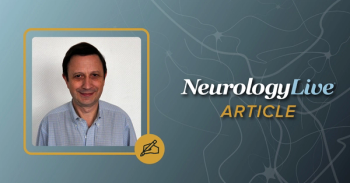
Improving Social Support, Recognizing Importance of Social Interaction in Parkinson Disease: Neal Hermanowicz, MD

The neurologist at Christus St. Vincent Health System discussed why social behaviors are an important component of optimal care for patients with Parkinson disease and the need to improve social support for this population.[WATCH TIME: 3 minutes]
WATCH TIME: 3 minutes
"Some people with this diagnosis tend to pull back on their social connections, and that’s not good. All of us who’ve been doing this for a while have had that intuitive sense, but now we have data from our study showing that this is an important component."
Although the benefit of socializing has been difficult to quantify, many experts agree that social support is beneficial for patients with movement disorders. Because of the restrictions caused by the COVID-19 pandemic, social isolation has become a more common theme for these patients and remains a challenge that clinicians are attempting to tackle. One study performed by the
The data also revealed that this decline was associated with the burden of several motor PD symptoms as well as nonmotor symptoms, such as decline in memory, problem solving, or communication (P = 0.0009), new or worsening confusion (P < 0.0001), and new or worsening delusions (P = 0.018). Lead investigator Neal Hermanowicz, MD, believes that above all the findings, the greatest takeaway should be the valued importance of social connectedness. As a neurologist at Christus St. Vincent Health System, he admitted that it can be difficult to remind patients about its importance, but that it is something of which all clinicians, caregivers, and patients alike should be cognizant.
In a recent interview with NeurologyLive®, Hermanowicz discussed the ways the clinician community can improve the social support patients with PD receive, along with the benefits social connectedness that may not be portrayed through data. He also stressed emphasizing this aspect of care to young neurologists in education, noting that many of the conversations have traditionally been dominated by studying the pathology and pharmacology of this disease.
REFERENCE
1. Hermanowicz N, Ospina MC, Torres-Yaghi Y, et al. Impact of isolation during the COVID-19 pandemic on the patient burden of Parkinson disease: a PMD Alliance survey. Neuropsychiatr Dis Treat. 2022;18:633-643. doi:10.2147/NDT.S351691
Newsletter
Keep your finger on the pulse of neurology—subscribe to NeurologyLive for expert interviews, new data, and breakthrough treatment updates.










